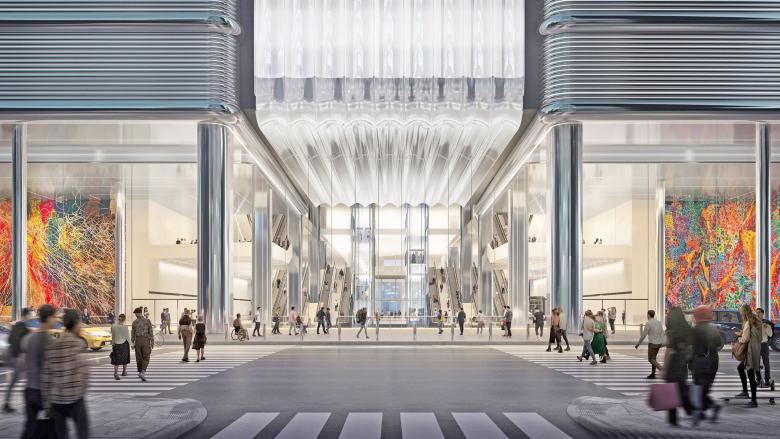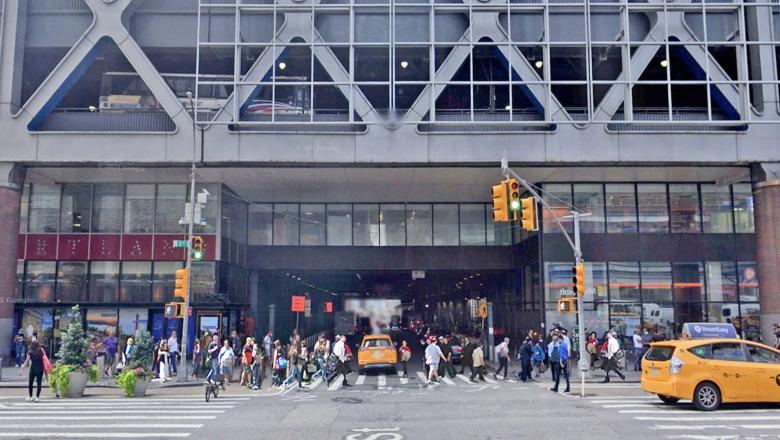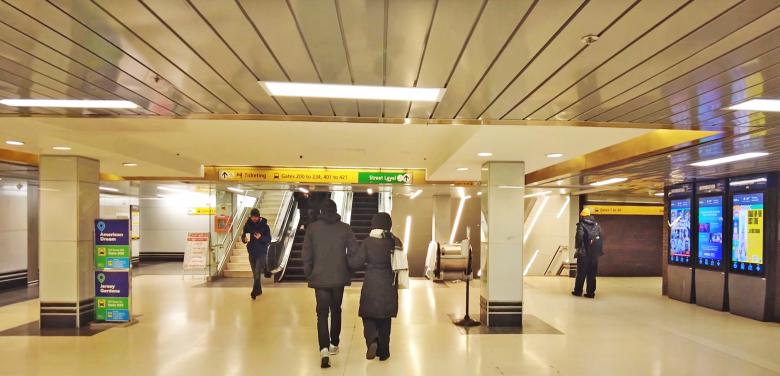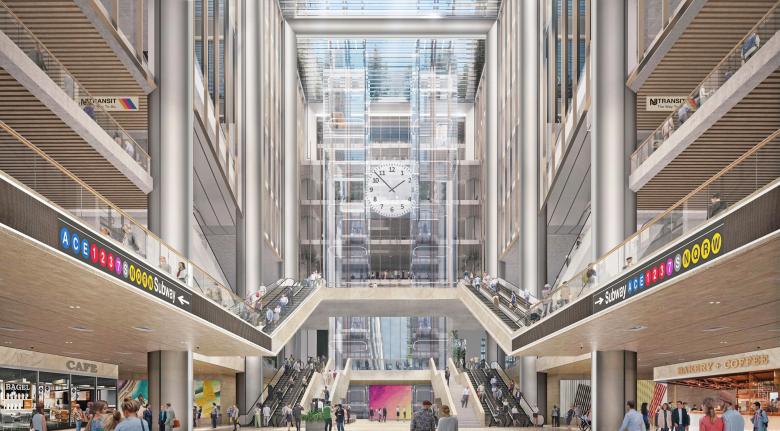Foster + Partners in NYC
Renderings of New Midtown Bus Terminal Revealed
On February 1 the Port Authority of New York and New Jersey (PANYNJ) announced the completion of a draft environmental impact statement for the proposed Midtown Bus Terminal, which would replace the much-unloved Port Authority Bus Terminal in Midtown Manhattan, revealing two renderings of the design by Foster + Partners at the same time.
Last week's announcement is the latest step in a long process for the Midtown Bus Terminal, a $10 billion project that will involve the construction of three structures (a 2.1 million-square-foot main terminal, a storage/staging building, and new ramps) over roughly a decade. The “73-year-old, functionally obsolete and rundown terminal” will be replaced with “a long overdue world-class facility” designed by Foster + Partners. The firm, with Epstein, was selected as architectural advisor in 2022. Completion of the project, to be built in phases, would wrap up in 2032 with construction of the main terminal coming last.
Not surprisingly, the two renderings included in last week's announcement show the main terminal and are accompanied by photos of the existing to depict a dramatic departure from the current situation. Compare the existing intersection of 8th Avenue and 41st Street (below) with a rendering of the same (above), in which a portion of 41st Street would be closed to create an “iconic” atrium entrance.
While the public widely and vocally dislikes the current terminal, the sentiment is shared by the Port Authority as well. Its executive director, Rick Cotton, even calls it “the worst infrastructure eyesore in the nation.” While the Port Authority Bus Terminal is indeed an eyesore outside, it is equally depressing inside, given the low, leaky ceilings in the corridors and waiting areas. The single interior rendering, by contrast, shows a soaring atrium and clear circulation.
Although the publication of the draft environmental impact statement by the Federal Transit Administration indicates steps are being taken toward replacing the outdated facility, paying for the new terminal and its related structures remains a question mark, particularly given the low demand for office space in post-pandemic Manhattan. The high price tag of the project is to be covered, in part, by federal loans and, per the announcement, “a financing vehicle associated with plans for commercial development above the new terminal.” But is commercial development desirable now, as developers are looking at ways to convert unused office space to residential, and will it be in the coming years and decades after the new terminal is completed? This issue will have as much impact on these renderings becoming reality as will the desire to replace the “eyesore” with something “world-class.”



